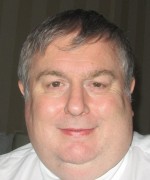Dabs and DNA detects criminals
Chris Truran
- Region:
- East of England
- Notice Period:
- Short (maybe less than one month's notice)
- Type:
- Part time speaker to organisations such as U3A / Rotary / WI
- Fee:
- Expensed: £80 - £90 dependant on distance.
- Category:
- Science
- Updated:
- 15th July 2022
- Tagged:
- Crime Detection | Forensics
The development of fingerprints at the beginning of the 20th century up to the first crime solved using DNA. I cover the first criminals convicted by fingerprints, the Brighton Bombing, Locherbie, the Tsunami, James Hanratty and DNA from a daughter that solved a 30 year old murder by her father.
Views: 1591 | Enquiries: 25About Chris Truran
I joined the Metropolitan Police on 6th March 1975. I trained as a Scenes of Crimes Officer (SOCO). I worked in central, north and north west London. During my 38½ years I examined over 25,000 crime scenes ranging from Shop-lifting to Murder. When I started examining crime scenes DNA was in its embryonic stage.
I have 4 talks, (1) Dabs and DNA detects criminals (2) Every Contact leaves a trace (3) Digital Forensics - who is watching you and (4) a funny thing happened on the way to the Old Bailey. They all relate to aspects of forensic and fingerprint evidence used in crime investigations.
Send a message to the speaker
If you are interested in this talk and wish to contact the speaker, please complete the following form:

